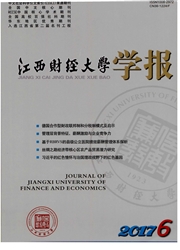

 中文摘要:
中文摘要:
利用2003—2012年31个省、市、自治区的截面数据,通过LM检验选定2003—2012年所适用的模型,分析十年间我国金融业发展对城镇化作用的演变情况。实证结果显示,十年间金融业发展对城镇化的作用呈现出不显著—增高—不显著—降低—增高的演变趋势。整体上看金融业发展对城镇化是有正向促进作用的,且在长期上该作用是逐渐增大的。但这一作用易受宏观经济波动和宏观政策调整等外界客观因素的影响而出现短暂的不显著。基于以上分析,提出应在城镇基础设施建设、城镇产业发展、农村转移人口市民化三个方面加大金融的支持力度,强化金融业发展对城镇化的促进作用。
 英文摘要:
英文摘要:
By making use of the cross-sectional data of 31 provinces, municipalities and autonomous regions from 2003 to 2012 and selecting the model suitable for the period of 2003-2012 through LM test, this paper makes an analysis of the evolution of the impacts of China's fmancial industry development during the decade on the urbanization. The empirical results show that the impact of the financial industry development during the decade on urbanization presents such an evolution trend: not significant - increased - not significant - reduced - increased. As a whole, the financial industry development can play a positive role in promoting urbanization, and in the long term the effect is gradually increasing. However, this effect is easily affected by c fluctuations, macro-policy adjustments and other external objective factors to become transitory non-significant. Based on the above analysis, we propose that the financial support should be strengthened from the three aspects of the urban infrastructure construction, the urban industrial development, and the citizenization of the rural migrant population, so as to strengthen the role of the financial sector development in promoting urbanization.
 同期刊论文项目
同期刊论文项目
 同项目期刊论文
同项目期刊论文
 期刊信息
期刊信息
